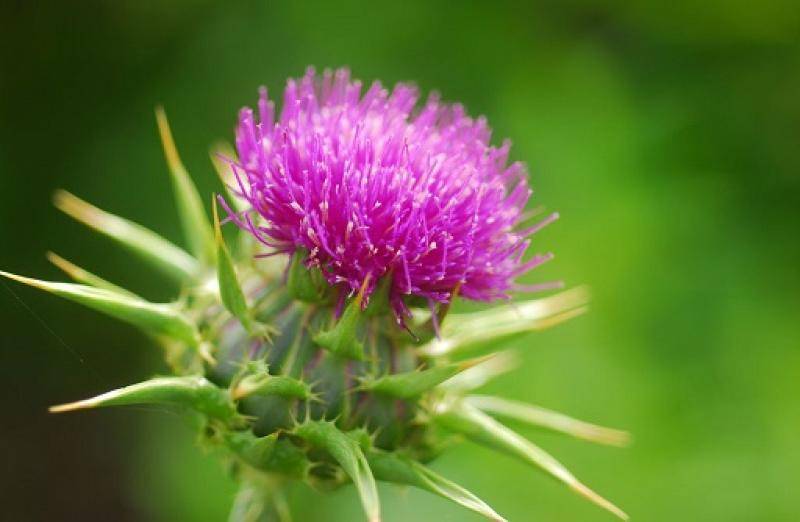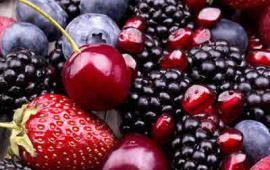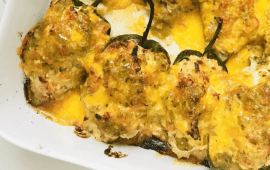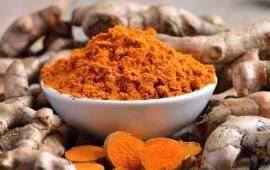Milk thistle has properties for the treatment of cancer, due to its high content of silibinin, with antioxidant, anti-inflammatory and liver-protective action.
Studies published in recent years show that silibinin from milk thistle is effective in preventing and treating different types of cancer, with the main antitumor mechanisms being:
- Ability to block the cell cycle
- Produce apoptosis or cell death.
- Ability to block the cell cycle.
- Inhibit the formation of new tumor vessels (anti-angiogenic).
- Inhibit metastasis.
Silibinin in milk thistle has been shown to have anti-tumor properties by scientific studies in:
- Breast cancer
- Lung cancer
- Pancreatic cancer
- Stomach cancer
- Colon cancer
- Liver cancer
- Prostate cancer
- Melanoma
- Womb cancer
Silibinin from milk thistle has also shown inhibition of colon cancer tumor stem cells and the ability to iinhibit non-small cell lung cancer metastases.
It has also demonstrated effectiveness in ALK-positive lung cancer in preventing resistance to tyrosine kinase inhibitor therapy.
Silibinin is an adjunct to be considered in the metabolic cancer treatment of some types of cancer, where the mechanisms by which it acts are well studied.
It is also important for liver protection during chemotherapy and immunotherapy treatments.
Scientific studies on the effect of milk thistle silibinin in the treatment of cancer
- Ray PP et al. (2024). A comprehensive evaluation of the therapeutic potential of silibinin: a ray of hope in cancer treatment. Front Pharmacol. 2024 Feb 29;15:1349745. doi: 10.3389/fphar.2024.1349745. PMID: 38487172; PMCID: PMC10937417.
- Gupta J, Turki Jalil A et al (2023). The Radiosensitizing Potentials of Silymarin/Silibinin in Cancer: A Systematic Review. Curr Med Chem. 2023 Oct 26. doi: 10.2174/0109298673248404231006052436. Epub ahead of print. PMID: 37921180.
- Nuriye Ezgi Bektur Aykanat et al. (2020). Silymarin Suppresses HepG2 Hepatocarcinoma Cell Progression Through Downregulation of Slit-2/Robo-1 Pathway. Pharmacol Rep. 2020;72(1):199-207 DOI: 10.1007/s43440-019-00040-x.
- Binienda A, Ziolkowska S et al (2019). The Anticancer Properties of Silibinin: its Molecular Mechanism and Therapeutic Effect in Breast Cancer. Anticancer Agents Med Chem. 2019. doi:10.2174/1871520620666191220142741.
- Silvia Zappavigna, Daniela Vanacore et al. (2019). Silybin-Induced Apoptosis Occurs in Parallel to the Increase of Ceramides Synthesis and miRNAs Secretion in Human Hepatocarcinoma Cells. International Journal or Molecular Sciences 2019, 20, 2190; doi:10.3390/ijms20092190.
- Hosseinabadi T, Lorigooini Z, Tabarzad M, et al. (2019). Silymarin antiproliferative and apoptotic effects: Insights into its clinical impact in various types of cancer. Phytother Res. 2019;33(11):2849-2861. doi:10.1002/ptr.6470.
- Kim SH, Choo GS, et al. (2019). Silymarin induces inhibition of growth and apoptosis through modulation of the MAPK signaling pathway in AGS human gastric cancer cells. Oncol Rep. 2019;42(5):1904-1914. doi:10.3892/or.2019.7295.
- Zhang X, Jiang J et al. (2019). Silibinin inhibited autophagy and mitochondrial apoptosis in pancreatic carcinoma by activating JNK/SAPK signaling. Pathol Res Pract. 2019;215(9):152530. doi:10.1016/j.prp.2019.152530.
- Gioti K, Papachristodoulou A et al. (2019). Silymarin Enriched Extract (Silybum marianum) Additive Effect on Doxorubicin-Mediated Cytotoxicity in PC-3 Prostate Cancer Cells. Planta Med. 2019;85(11-12).
- Shi Z, Zhou Q, Gao S, et al. (2019) Silibinin inhibits endometrial carcinoma via blocking pathways of STAT3 activation and SREBP1-mediated lipid accumulation. Life Sci. 2019;217:70-80. doi:10.1016/j.lfs.2018.11.037.




